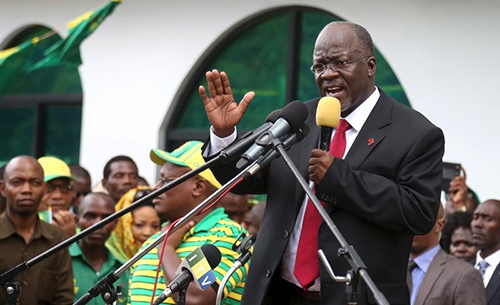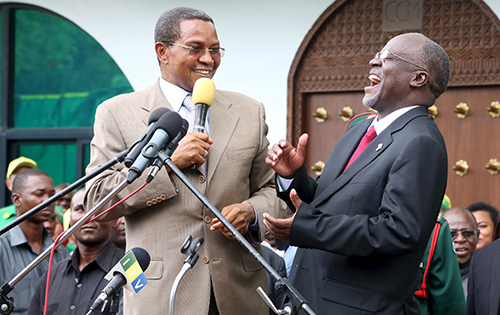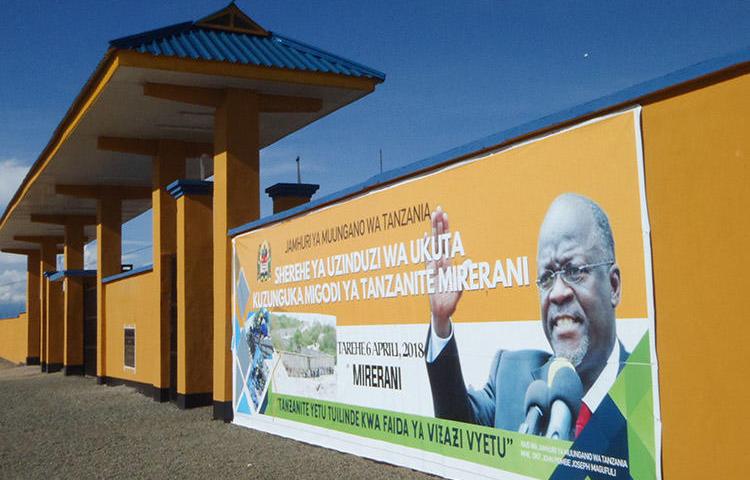Tanzania slaps fines on 5 TV stations after they report on alleged human rights abuses
Nairobi, January 12, 2018–Tanzanian authorities should immediately annul fines levied against five television stations that the country’s regulatory commission accused of broadcasting seditious and unbalanced content, the Committee to Protect Journalists said today.
Tanzania police raid popular website’s office in effort to learn users’ identities
Nairobi, December 14, 2016–Tanzanian security forces should immediately and unconditionally release Maxence Melo, the co-founder of popular online discussion portal Jamii Forum, the Committee to Protect Journalists said today. Police raided the website’s office in the capital Dar es Salaam today, after detaining Melo yesterday.

Tanzania cuts live parliamentary coverage, ending vital news source for citizens
On April 19, the live coverage of proceedings in the Tanzanian parliament ended as a government decision to halt the service went into effect. The move, announced by Information Minister Nape Nnauye in January, has led to protests from the opposition party and journalists’ groups, who said they view the decision to stop live broadcasts…
Tanzanian journalist abducted, beaten for Zanzibar election coverage
Unknown assailants abducted Salma Said, a reporter with the Kiswahili-language Mwananchi (“Citizen”) newspaper and a correspondent for Germany’s international broadcaster Deutsche Welle, shortly after the journalist arrived at Dar es Salaam’s Julius Nyerere International Airport on March 18, 2016, according to news reports and a statement she made to the Tanzania Human Rights Defenders Coalition…
Tanzania imposes permanent ban on weekly newspaper
New York, January 21, 2016–The Committee to Protect Journalists calls on authorities in Tanzania to end their harassment of the weekly newspaper Mawio. The Kiswahili-language newspaper was permanently banned from publishing in print and online Friday and two of its editors were briefly detained, according to reports.

Tanzania’s press wait to see if new president will reform troubling media laws
Elections in Tanzania passed smoothly in October, but several local journalists and a media lawyer told me the spectre of anti-press laws is casting a pall over critical reporting in the country and that hopes for legal reform under the newly elected President John Pombe Magufuli remain muted.

Tanzania bans circulation of regional weekly
Nairobi, January 27, 2015–Tanzanian authorities banned circulation of the privately owned regional weekly The East African on January 21, citing the newspaper’s lack of registration, according to news reports. Local journalists said they believed the paper was shut because of its critical coverage of the government.

